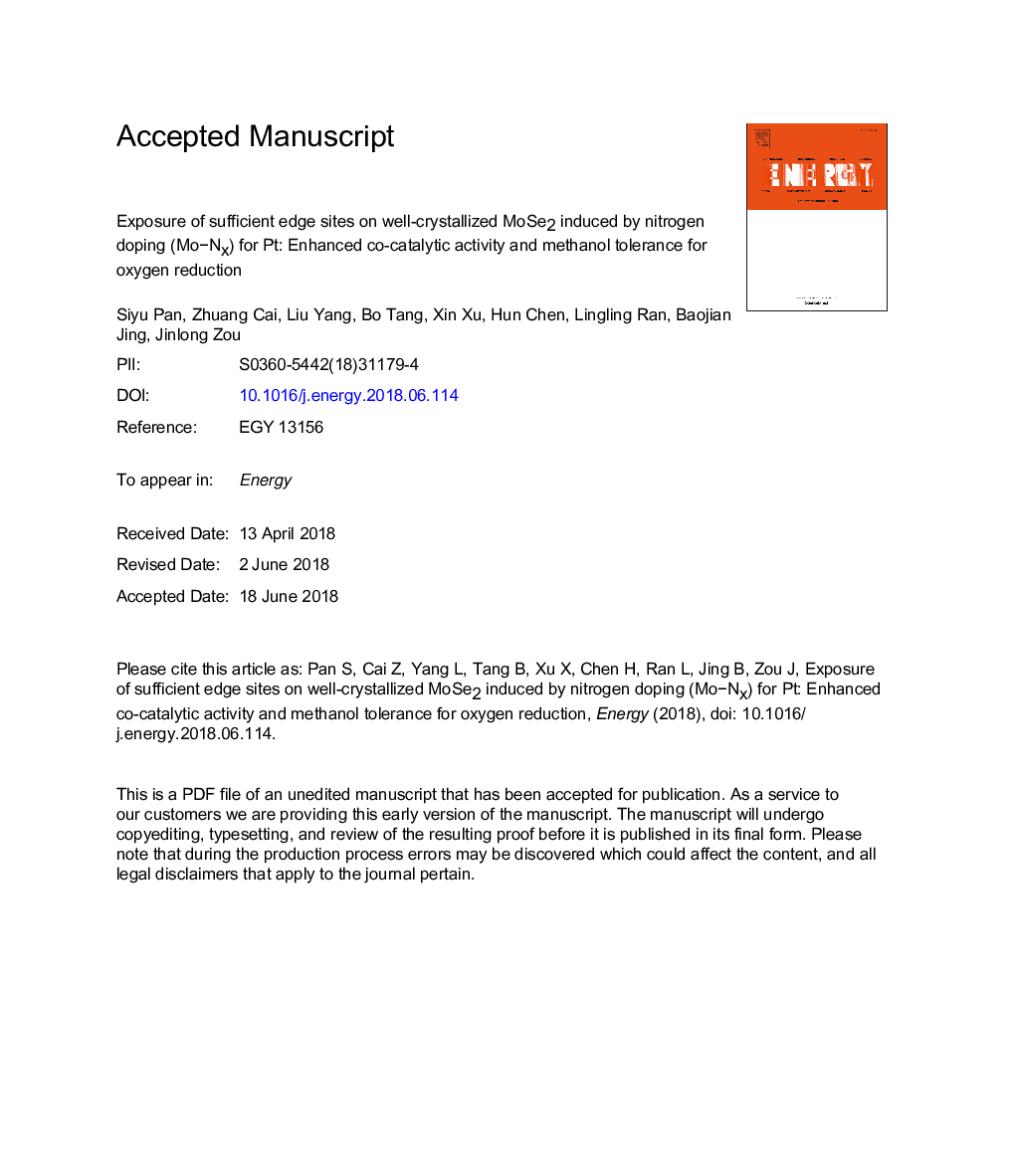| Article ID | Journal | Published Year | Pages | File Type |
|---|---|---|---|---|
| 8071037 | Energy | 2018 | 35 Pages |
Abstract
To endow catalyst supports with excellent co-catalytic activity is an effective way to strengthen methanol-tolerance of Pt-based catalysts towards oxygen reduction reaction (ORR). In this study, nitrogen-doped molybdenum selenide/biomass-derived carbon (N-MoSe2/BC) composite as a Pt-support/co-catalyst is prepared via a synchronous synthesis method to enhance methanol tolerance. The porous structure of N-MoSe2/BC with N-doping can improve the exposure of coordinated Mo-Sex sites along MoSe2 edges and provide the oxygen diffusion channels to promote ORR activity. Pt-N-MoSe2/BC (Pt, 5â¯wt.%) shows high activity (14.83â¯mAâ¯cmâ2) and selectivity (4eâ pathway) towards ORR, promising durability (11.9% decline) and excellent tolerance against methanol-crossover effects, which are superior to those of commercial Pt/C (10â¯wt.%). With the introduction of pyridinic N, graphitic N and MoâNx in MoSe2/BC, more active sites on Pt (111) facets are activated to enhance charge transfer efficiency and ORR activity. Both N-species in BC and exposed edge sites in N-MoSe2 contribute to high methanol-tolerance and co-catalytic activity towards ORR. Therefore, the remarkable ORR activity is originated from the synergistic effects among well-distributed Pt, N-species, and active edge sites of MoSe2. Design of porous (N)-MoSe2/BC provides a promising direction for preparation of co-catalyst/support with strong methanol tolerance and ORR activity.
Related Topics
Physical Sciences and Engineering
Energy
Energy (General)
Authors
Siyu Pan, Zhuang Cai, Liu Yang, Bo Tang, Xin Xu, Hun Chen, Lingling Ran, Baojian Jing, Jinlong Zou,
